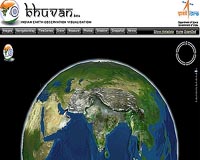India offered to help South East Asian nations in management of natural disasters by sharing satellite data for the region and launch small satellites built by them."We would be ready to share satellite data for management of natural disasters, launch small satellites and scientific instruments and payloads for experiments in remote sensing and communication for space agencies and academic institutions in ASEAN countries," Prime Minister Manmohan Singh said.The Indian Space Research Centre (ISRO) has one of the largest constellation of advanced remote sensing satellites in the world which orbit the earth at regular intervals. Images of the earth received from these satellites can be utilised for disaster management initiatives in the ASEAN region, parts of which are prone to cyclones and earthquakes.
Thursday, October 29, 2009
Tuesday, October 20, 2009
Killer Algae was Key Player In Mass Extinctions
A new theory suggests lowly algae may be the killer behind the world's great species annihilations. Anywhere there is water, there can be toxic algae. The microscopic plants usually exist in small concentrations, but a sudden warming in the water or an injection of dust or sediment from land can trigger a bloom that kills thousands of fish, poisons shellfish, or even humans.
James Castle and John Rodgers of Clemson University think the same thing happened during the five largest mass extinctions in Earth's history. Each time a large die off occurred, they found a spike in the number of fossil algae mats called stromatolites strewn around the planet.
James Castle and John Rodgers of Clemson University think the same thing happened during the five largest mass extinctions in Earth's history. Each time a large die off occurred, they found a spike in the number of fossil algae mats called stromatolites strewn around the planet.
Monday, October 12, 2009
Thursday, October 8, 2009
Online atlas to map Indian state’s biodiversity 8 October 2009
The Karnataka Biodiversity Board (KBB) is preparing an online atlas of the state’s biodiversity. The atlas, the first of its kind in the country, will provide information about the diversity of Karnataka’s wildlife species and their habitats and help researchers, resource managers, decision-makers and the public. This would help conservation planning and decisionmaking.The KBB official said that once the atlas was ready, any individual, group or agency concerned about biodiversity and interested in protecting the diverse species and habitats in the state, could access a range of data under one umbrella.The board has identified four organisations— Atree (Ashoka Trust for Research in Ecology and the Environment), Bangalore University, EMPRI (Environment Management and Policy Research Institute) and the Forest College of the Agriculture University— for the development and maintenance of this atlas.The National Biodiversity Board would be the primary funding agency for this project. Institutions involved in the project would prepare their respective cost estimates.

